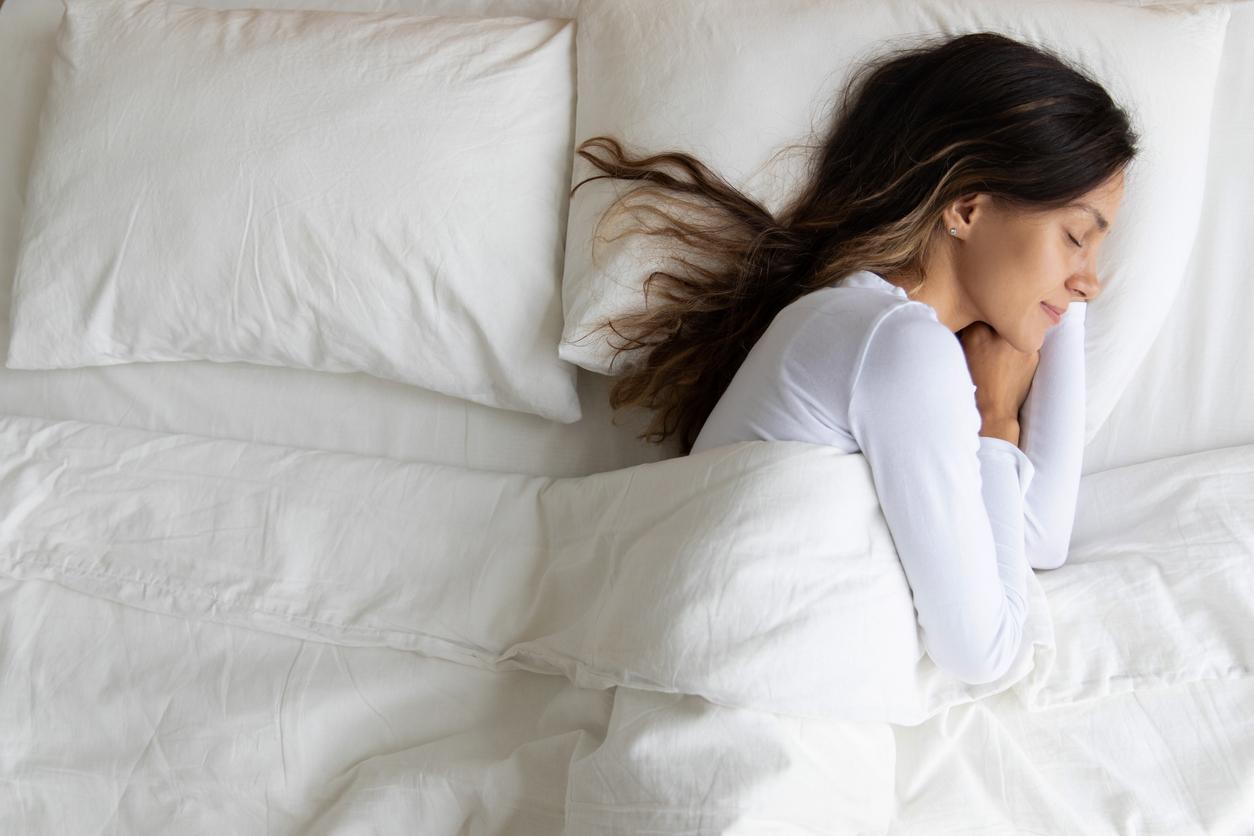Sleeping in to compensate for a lack of sleep increases the risk of developing certain diseases because it shifts the biological rhythm.

- Sleeping late increases the risk of developing certain diseases, including heart pathologies.
- This is linked to the disruption of the circadian rhythm and its impact on our metabolism.
- It is better to focus on regularity to sleep well.
The weekend is conducive to slowing down the pace. Faced with the stress of the week, it is finally possible to take your time. For many people, this is the perfect time to catch up on missed sleep by sleeping in. However, several scientists agree that these prolonged nights of sleep are bad for your health.
Sleep: what are the health problems linked to sleeping in?
In 2022, researchers at the University of Arizona published a study on the effects of sleeping in. These specialists describe the difference in sleep patterns between working days and non-working days as “jet lag social”. Through surveys and information on the health status of study participants, they highlighted an association between the difference in sleep schedules depending on the days of the week and the risk of heart disease. Each hour of difference between weekday and weekend schedules was associated with an 11% increase in the risk of heart disease.
At the same time, they observed an increased risk of bad mood, drowsiness, fatigue and poor overall health. “These results indicate that the regularity of sleep, beyond just the length of the nights, plays an important role for our health.concluded the main author of the study Sierra B. Forbush.
These conclusions are confirmed by Caroline Rome, sophrologist and specialist in sleep disorders. HAS West France, she explains that the risks of mortality are higher for people who regularly sleep in. “As soon as we move away from the natural rhythms called circadian rhythms and which in some way represent the internal clock of the human body, the metabolism is disrupted: on the cardiovascular level, on the carbohydrate processes, etc.she adds. There is an increased risk of developing type 2 diabetes.
Sleeping in: a risk of sleep disruption
Also, sleeping in regularly can have deleterious effects on sleep. In case of insomnia, theHealth Insurance recommends respecting regular schedules, including weekends. “Avoid sleeping in, which disrupts your sleep schedule. specifies the organization. The body and brain must establish habits that will help regulate your internal clock. Repetition allows the body to register the signals announcing the start of the night’s sleep.

Should you sleep in if you go to bed late?
For Caroline Rome, sleeping in may be an option, but reserved for people who do not suffer from sleep disorders. “A healthy individual can sometimes afford it, without overdoing it, she considers. You have to continue to go and do sports, take advantage of the light from lunch, and then try to recover to get back into social rhythms.” When going out at night, she advises avoiding getting up too late and favoring a short nap between 1 and 3 p.m., while maintaining a normal schedule in terms of meals and exposure to natural light.















